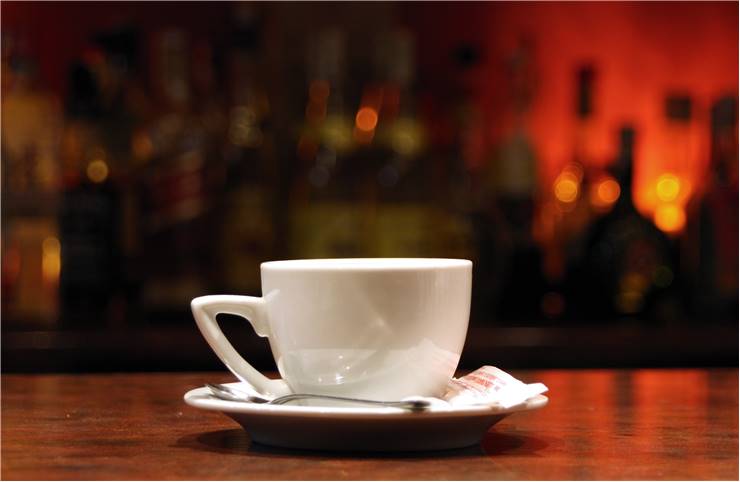Caffeine Content of Instant Coffee
Instant coffee or the powdered substance was invented in Buffalo, New York by Japanese scientist Satori Kato in 1901. After that Gorge Constant Louis Washington, an Englishman living in Guatemala developed his own instant coffee process in 1906 and marketed it commercially in 1910. In 1938 the Nescafe brand introduced a more advanced coffee refining process.
This is a very strong, concentrated coffee, which is brewed from ground coffee beans, then the liquid has the moisture removed by freeze-drying (or by spray-drying) to leave just the solids.
We can use instant coffee as an alternative to traditional brewed coffee. This type of coffee is also called soluble coffee. Advantage of instant coffee is its simplicity of preparation. This coffee requires only hot water and instant granules. Instant coffee is made by removing the water from brewed coffee, and on that way is formed concentrated instant powder.

The content of caffeine in instant coffee depends on many factors including how big the cup, how much of this concentrated coffee is used and the type (brand) of instant coffee bean used. Generally, the caffeine content depends completely on the quantity of instant granules we use.
In instant coffee content of caffeine is less than traditional coffee and it is more comparable to black tea or soft drinks.
A cup of instant coffee contains about 40 - 120 mg caffeine.
A cup is usually understood to contain 150 ml (5 oz in the United States), but the range of measurements is so wide that, for most individuals, it is inaccurate to use these figures as a basis for calculating the exact amount of caffeine consumed in a day.
An 8-ounce cup typically contains between 65mg and 135mg of caffeine, average 70.
Also, if we use significantly more or less instant granules, the caffeine content will vary accordingly.
We can use decaffeinated instant coffee, which despite its name, does contain some caffeine.
Instant decaffeinated coffee contains only 2mg of caffeine (5 ounce cup).
Recommended consumption of caffeine is less than 300mg per day, which is roughly equivalent to 5 cups of instant coffee. The maximum amount of caffeine we should consume in a day is 600mg, which would mean six to eight cups of instant coffee.
Comparison with other beverages:
Traditional coffee contains more caffeine than instant. The caffeine content of an average 5 ounce cup of brewed coffee can vary from 50 to 120mg. (an 8 ounce cup has between 80mg and 135mg).
Espresso contains about 100mg of caffeine per 2 ounce cup. An average cup of espresso has about 2 to 3 times as much caffeine as an average cup of instant coffee.
An average 5 ounce cup of black tea contains about 30-60mg.
Instant tea contains about 12 - 28mg caffeine.
Decaffeinated coffee contains only about 2-5 mg per five ounce cup. The decaffeination process effectively removes about 97% of the caffeine.
A decaffeinated cup will have about a fifth of the caffeine content of an instant cup of coffee.
If someone wants to calculate, there is caffeine content per gram of coffee.
Average caffeine content in instant coffee is 32.5 mg per gram of coffee.
Average caffeine content of regular coffee is 13.5 mg per gram of coffee.
Average caffeine content of decaffeinated coffee is 0.7 mg per gram of coffee.
Don’t forget, while consuming caffeine may have its benefits, it's still important to keep our daily intake under average to avoid the negative side effects of over-consumption.
Note: All figures are approximate, this site does not provide medical advice, diagnosis or treatment.
